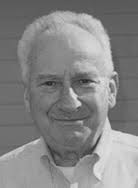A semantic argument means literally having an argument about the precise meaning of a word or phrase. For communication to effectively occur between any two people, there must be some common understanding about the definitions of the words being used. For example, "mostly peaceful" protestors could also be described as "occasionally violent" rioters, depending on one's own perspective. Some people like to watch grown men put on boxing gloves and beat each other into a bloody pulp, but my idea of great entertainment is to watch a verbal jousting match between two intellectuals about a subject that ought to interest all of us, the origin of life. So, as I watched the debate between organic chemist Lee Cronin and synthetic chemist James Tour on the Unbelievable podcast hosted by Justin Brierly, I naturally expected to hear technical jargon and terminology used in their discussion that would sound foreign to me. While I was worried a phrase like “self-assembly of a nanoscale transition metal cluster” would baffle me, it honestly never occurred to me that these two brilliant scientists would be using words like "life" and "information" in a context that I didn't quite understand. https://www.youtube.com/watch?v=3DHvNRK452c After Dr. Tour provided the "textbook" definition of life according to Google (composed of cells, can reproduce, metabolize, etc.), and then said, “Information itself is not life. Would you agree with that? Life has information, but information itself is not life. I can have a piece of paper and write on that piece of paper. That piece of paper … [Read more...]
Molecular Biologist Franklin Harold’s thoughts on abiogenesis
Described as "one of the world's most respected microbiologists" on the jacket of his hardcover book in our local library, Professor Franklin Harold of Colorado State University has included some fascinating observations In his book The Way of the Cell on the topic of abiogenesis, or the scientific hypothesis about the origin of life. If one cares about the mini-reviews on the back cover, they would seem to lend credibility to his claim of expertise on the subject, given the enthusiastic endorsement of his book by renowned biologist Lynn Margulis. Dr. Harold appears to be imminently qualified to write about the subject in question. In my opinion, his chapter titled "Searching for the beginning" is so remarkable we should start at its beginning. Professor Harold writes, Of all the unsolved mysteries remaining in science, the most consequential may be the origin of life. This opinion is bound to strike many readers as overblown, to put it mildly. Should we not rank the Big Bang, life in the cosmos, and the nature of consciousness on at least an equal plane? My reason for placing the origin of life at the top of the agenda is that resolution of this question is required in order to anchor living organisms securely in the real world of matter and energy, and thus relieve the lingering anxiety as to whether we have read nature's book correctly. Creation myths lie at the heart of all human cultures, and science is no exception; until we know where we come from, we do not know who we are. [emphasis added]"Franklin Harold, The Way of the Cell Many people who argue … [Read more...]


